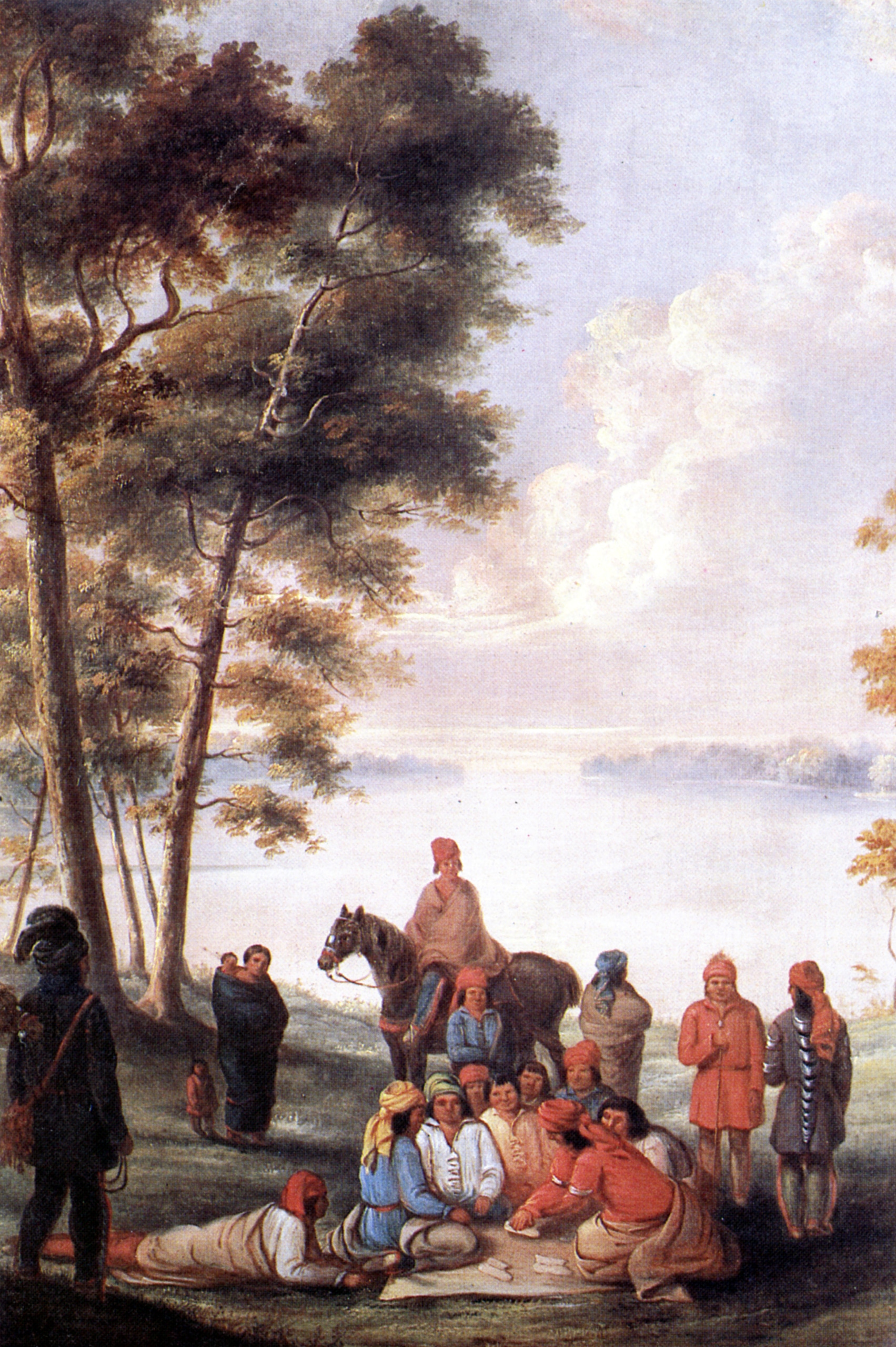Gdezhchegéwnenan: Our Ways
Winter Games
Games of skill are those with outcomes determined by a player’s mental and physical abilities, rather than by chance. Traditional sports of this nature were and still are played by Bodéwadmi and other Indigenous communities to build communal ties through leisure, celebrate and honor sacred and ceremonial events, cure the sick, and hone necessary physical and cognitive skills. Games are played within a single community or as entire regions gather for tournaments, with prizes shared among players and communities as wages are won and lost. From wrestling and bow shooting to foot races and horseback riding, accomplished athletes were traditionally granted the same level of esteem as prominent warriors and leaders.
During bbon, Bodéwadmi communities gather to play a centuries old sport called zhoshméwen or snowsnake. In the past, snowsnake was played not only for amusement, but for spiritual and therapeutic means. It is thought that the comradery among players remedied the sick. Games can last for several hours and are played individually or in teams. Each player is equipped with a spear-like implement called a zhoshman. Carved from local hardwoods and polished smooth, zhoshman range from two to seven feet in length and one inch in diameter. The object of the game is for each competitor to hurl their zhoshman, down an icy track, farther than their opponent. When thrown, the zhoshman is thought to resemble a snake slithering, hence the name snowsnake. The player or team with the longest cumulative distance wins. Zhoshmanen have been recorded at speeds in excess of 100 mph and travelling more than a mile.
Games of chance are those with outcomes determined by a randomizing action or device. Classic Bodéwadmi games of this type strengthen mental acuity and strategy as well as tribal bonds and communal values. Fundamental to Indigenous games of chance is the act of wagering, used culturally as a means for sharing goods and ideas through social networking.
One of the most prominent and competitive winter games among Bodéwadmi is the Moccasin Game. Forming two teams, each is comprised of a finder/hider, scorekeeper, drummers and singers. Using theatrics, each team is tasked with hiding a small wooden ball under one of four moccasins in an attempt to disguise its location and confuse opponents. With the ball concealed, drummers and singers among the hiding team play specific songs to distract opponents and intensify gameplay. Points are earned based on the number and pattern of successful selections, each represented with distinct counting sticks. As the game progresses, teammates alternate roles to allow each member an opportunity to play and score points. The team that collects all counting sticks wins.

1837
Courtesy: Tippecanoe County Historical Association

2014
Courtesy: Gun Lake Tribe
